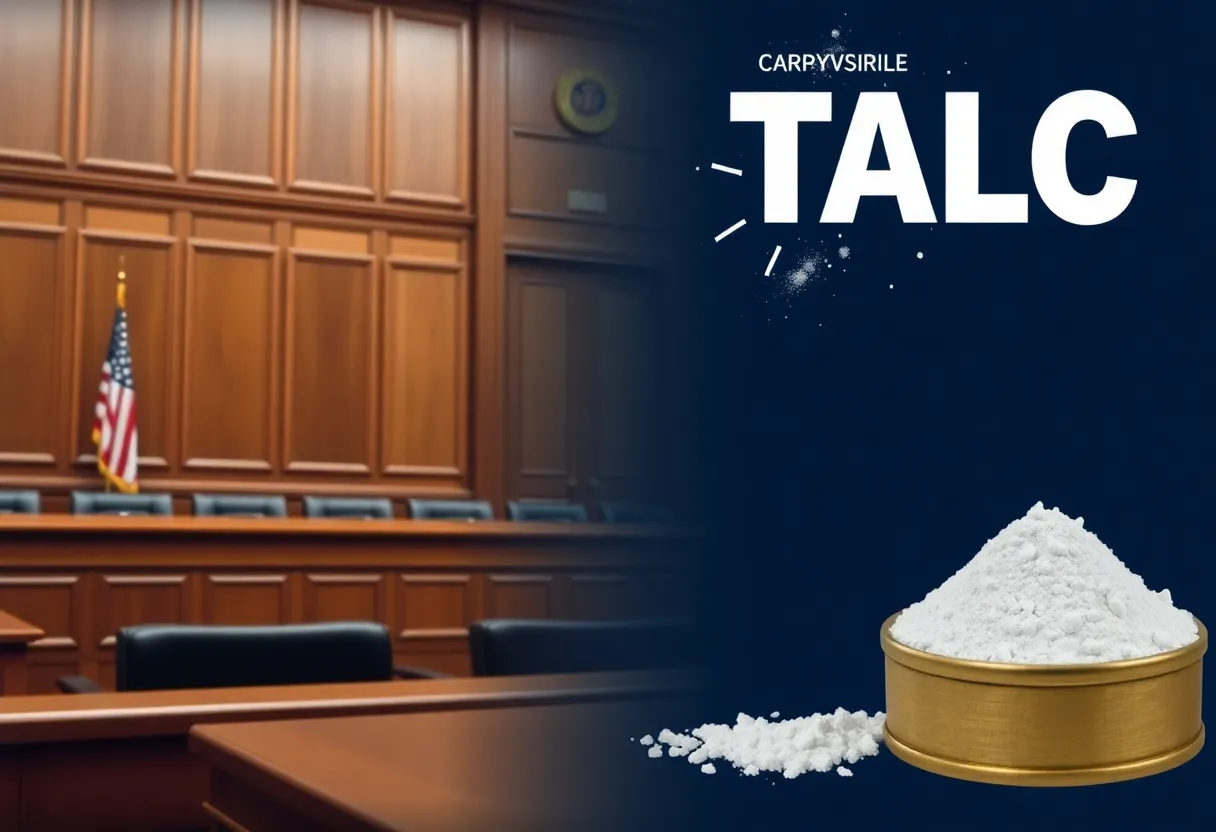News Summary
Berkshire Hathaway faces scrutiny over its ties to talc sales associated with mesothelioma cancer risks, raising serious concerns about corporate responsibility.
Warren Buffett’s Company Under Fire for Talc Sales Linked to Mesothelioma
In a shocking revelation, Warren Buffett’s conglomerate, Berkshire Hathaway, has found itself directly tied to the sale of talc, an ingredient heavily correlated with cancer risks. The spotlight shines brightly on individuals like Juliet Gray, a makeup user who developed peritoneal mesothelioma following prolonged exposure to talc-laden cosmetics. This alarming situation raises critical concerns regarding corporate responsibility in handling hazardous materials.
How Mesothelioma Links to Talc and Asbestos
Mesothelioma, a severe form of cancer, is primarily caused by long-term exposure to asbestos—a mineral that can inadvertently taint talc during its mining and processing. Unfortunately, Gray’s tragic diagnosis is just one example among thousands currently facing similar battles against cosmetic giants and talc suppliers. Central to the controversy is Whittaker, Clark, & Daniels, a talc supplier that has come under siege for allegedly exposing consumers to harmful asbestos.
Bankruptcy Shields and Legal Maneuvers
Whittaker, Clark, & Daniels filed for bankruptcy two years ago, claiming to possess a mere $80 million in cash assets and lacking access to additional funding. These bankruptcy filings have resulted in a significant pause for pending lawsuits against the company, allowing it to invoke a legal strategy commonly referred to as the “Texas two-step” to shield itself from liabilities associated with asbestos exposure. While a bankruptcy judge in New Jersey upheld this decision, the matter now awaits an appeal in the Third Circuit, potentially setting a dangerous precedent that could enable financially stable companies to evade responsibility for damaging health outcomes.
The Shocking Reality Behind Talc Claims
In recent developments, Whittaker, Clark, & Daniels has proposed a $535 million settlement for talc-related claims—a figure many plaintiffs find insultingly low compared to the immense damages they have suffered. Despite asserting their talc products have been asbestos-free since 1976, the company faces overwhelming evidence of continued contamination. The presence of harmful asbestos in talc products has been a known risk since as early as 1898, affecting miners and users alike who have experienced devastating health repercussions.
Deep Dives into Corporate Accountability
Berkshire Hathaway’s involvement raises questions about their responsibility concerning the health risks linked with talc. In 2007, a subsidiary was strategically positioned to acquire Whittaker, Clark, & Daniels, which allowed the corporation to profit from the remaining assets despite the health concerns surrounding talc. Moreover, Whittaker ceased its talc operations in 2004, yet the lawsuits continued to pour in following the 2007 acquisition.
Asbestos and the BNSF Railway Connection
To compound matters, questions surface about BNSF Railway, which is owned by Berkshire Hathaway and has been implicated in the negligent handling of asbestos-tainted vermiculite from a mine in Libby, Montana. This mining site has been notorious for causing severe health complications, including multiple deaths linked directly to mesothelioma. The Environmental Protection Agency declared a public health emergency in Libby in 2009 due to widespread asbestos contamination, affecting approximately 3,000 residents and costing over $600 million in cleanup efforts.
Unraveling the Legal Battles Ahead
The ongoing litigation against BNSF finds its roots in wrongful death claims from the estates of individuals who succumbed to mesothelioma, showcasing the desperate need for corporate accountability in public health crises. As legal representatives argue for justice, the situation becomes more pressing, underscoring potential failures in corporate responsibilities to protect individuals from known hazards.
Pushing for Change
The unfolding story not only highlights the tragic consequences of talc use and the implications of asbestos exposure but also emphasizes the quest for accountability in corporate practices. As society grapples with understanding the ramifications of these actions, victims advocate for justice and transparency. With bankruptcy protections in place and ongoing appeals, the future remains uncertain for both the companies involved and the countless individuals affected by their decisions.
Deeper Dive: News & Info About This Topic
HERE Resources
Mesothelioma: A Deadly Legacy of Asbestos Exposure
Startling Discoveries Reveal Lack of Awareness About Asbestos Risks
Asbestos Continues to Haunt Veterans: A Hidden Epidemic
Controversial Proposal to Reintroduce Asbestos Throws Australia into Debate
Asbestos Threat Looms Over Government Properties in Honiara
Recent Developments in Asbestos Legal Battles Across Washington State
The Asbestos Crisis in Libby, Montana: What You Need to Know
Asbestos: The Silent Killer Linked to Rising Cases of Mesothelioma
Asbestos Crisis in Libby, Montana: A Tragic Legacy of Contamination
Controversy Erupts Over Talc’s Tainted Legacy
Additional Resources
- Jacobin: Warren Buffett’s Company Under Fire for Talc Sales Linked to Mesothelioma
- Wikipedia: Mesothelioma
- Asbestos.com: Trial Underway Against Warren Buffett’s Railway Company
- Google Search: Warren Buffett asbestos lawsuit
- AP News: Asbestos Lawsuit Against BNSF Railway
- Google Scholar: Asbestos Exposure and Mesothelioma
- NY Post: Warren Buffett’s Railway and Asbestos Liability
- Encyclopedia Britannica: Asbestos



















